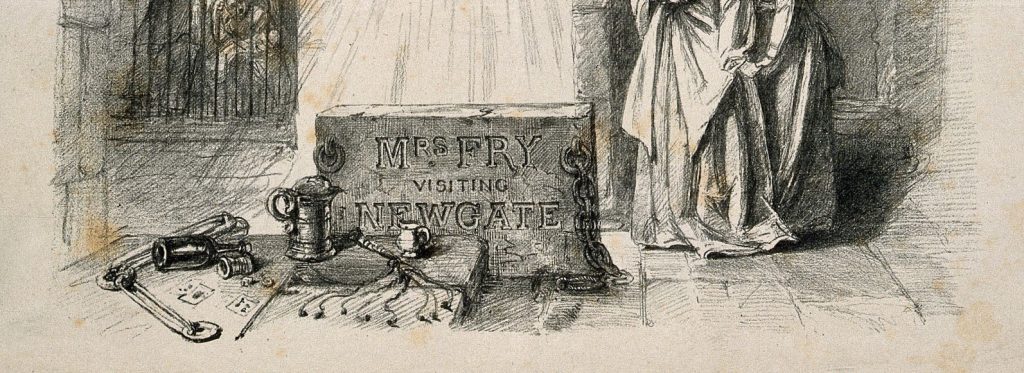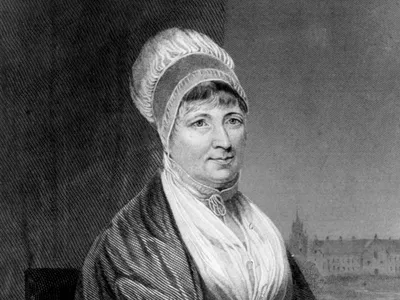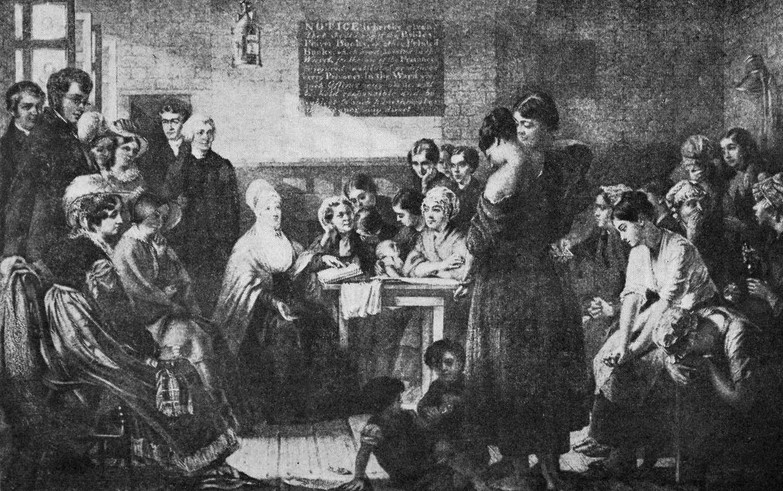
Who Was Elizabeth Fry?
Elizabeth Fry
Elizabeth Gurney was born in Norwich, England in 1780 to a well-off Quaker (Society of Friends) family. In 1800, she married Joseph Fry who was also a Quaker.
In 1813, Elizabeth Fry made her first visit to Newgate prison where she observed women and children in terrible conditions. Elizabeth began working for reform, campaigning for segregation of the sexes, female matrons for female prisoners, education and employment (often knitting and sewing) and religious instruction.

Her Work
Although most renowned for her prison reform efforts, Elizabeth Fry also played a role in investigating and proposing reforms in mental asylums.
Over a span of 25 years, she personally visited every convict ship bound for Australia, working to improve the convict ship system.
Additionally, she dedicated herself to enhancing nursing standards and established a nursing school that influenced her distant relative, Florence Nightingale.
Elizabeth Fry also championed the education of working women, advocated for better housing for the impoverished, and played a significant role in establishing soup kitchens.
In 1817, Elizabeth Fry founded the Association for the Improvement of Female Prisoners and rallied with a group of 12 women to advocate for reform, even approaching parliamentary authorities.
Throughout the 1820s, she tirelessly inspected prison conditions, continued her reform advocacy, and established additional campaign groups.
Finally, in 1823, prison reform legislation was introduced in Parliament.
The Elizabeth Fry Refuge
Elizabeth Fry died in 1845, prompting the Lord Mayor of London to convene a meeting in her honour. During this meeting, it was decided that an institute for ex-prisoners would be established as a tribute to her work – thus, the Elizabeth Fry Refuge was established.
In 1925 it was reconstituted as a charitable organisation and became a hostel for women on probation, which in 1949 was officially approved by the Home Office.
The Refuge moved to Reading in 1962 where the work continues in her memory.

It’s better than prison. Who wants to be in prison? Elizabeth Fry has touched me and staff do care it’s not just a job. Elizabeth Fry has a place in my heart always.
Sam

The Charity Today
Elizabeth Fry Charity, although retaining its charitable status, now owns and manages a hostel defined as an Independently Managed Approved Premises.
It receives funding through a contract with the Ministry of Justice to provide and manage the Approved Premises, and fundraises to provide vital additional services to the women we support.